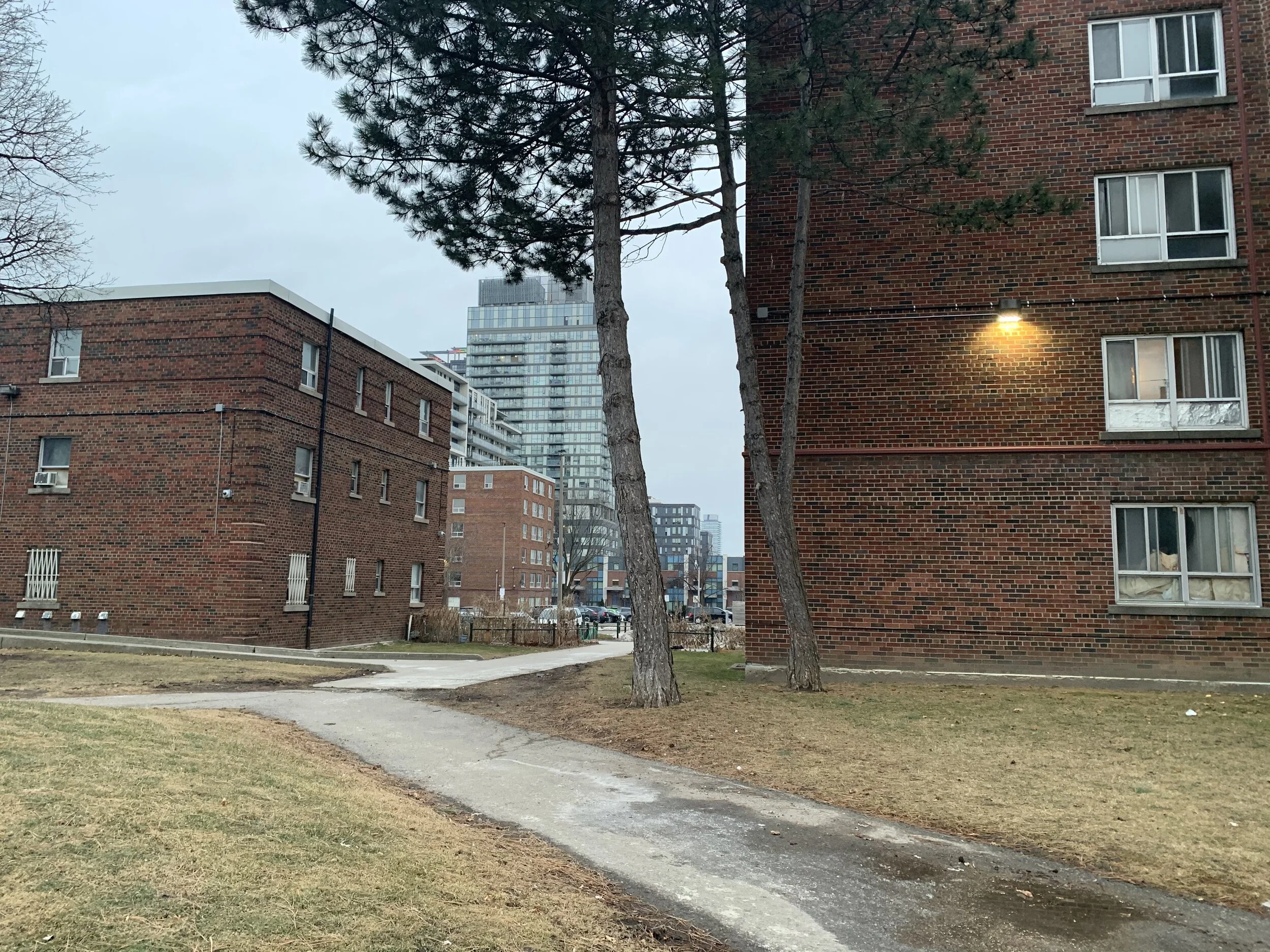On Monday, our team narrowed the focus of our project and began to make a concrete plan to implement it. This came in part from refining the goals we want our project to achieve and identifying our project’s intended audience. While our project was previously focused on comparing residents’ experiences of faith within Regent Park with their experiences outside of their neighbourhood, we have now decided to focus our project specifically on the experiences of Muslim youth within Regent Park. Through our interviews and photo series, we hope to illuminate how young people experience communities of faith in their neighbourhood and how their faith impacts their daily lived experience. Younger generations often have different relationships to faith than their parents, so we believe our project will highlight how youth culture and religion interact in ways that differ from other generations. We are hoping that our audience will be community members, and that our project will both help youth in the neighbourhood learn from one another and help older generations understand youth experiences.
We also achieved three of our more practical goals for this session: creating a detailed timeline for the project, creating a list of potential interviewees, and drafting interview questions. This is the timeline we created for our project:
The timeline feels a bit tight, but we are hoping to be able to stick to it to complete our project on time.
Fazra was instrumental in generating a list of potential interviewees. She talked to her friends from the neighbourhood, school, and other community groups like Pathways and generated a list of ten people who we could interview. This group of young people has a relatively even gender split and encompasses youth from their early teens into their mid-twenties. It includes Fazra’s friends and some community organizers who facilitate youth programming. The biggest challenge we ran into this week was trying to figure out how we will be able to schedule interviews with so many people at a time that works for our entire group. Fazra felt that a lot of her friends wouldn’t be available on evening or weekends and that it would be best to get them to record the interviews themselves, but this might make it hard to ensure consistency in our project. We are still trying to work out how to schedule our interviews.
A photo of old Regent Park buildings in the foreground and new developments in the background. Our group thought this could be a good location to photograph some of our interviewees. (Photo taken by Fazra)
This week, we also drafted a list of interview questions and began to scope out locations for our photographs within the neighbourhood. So far, we’ve come up with about ten questions that can be used to guide our interviews. They cover participants’ relationship to their faith, how their faith is connected to their neighbourhood, how faith creates community, and places where residents feel both most connected and disconnected from their faith within Regent Park. We also walked around the neighbourhood and began to brainstorm places we can take photos of our participants that showcase the religious fabric of the neighbourhood.
While we made some progress this week refining our topic and creating our interview questions, there is still a lot of uncertainty as to how exactly we are going to execute our project. While making a media project like this is exciting and liberating in many ways, it can be hard not to become anxious about living up to our own expectations about the project. I want to ensure our project is well-executed, and it can be hard at this stage in the process to believe that it will turn out as well as I hope it will. I think our project has the potential to be very powerful and to create a platform for youth voices, but this potential also creates a pressure to do this in a beneficial and impactful way. Hopefully this will be a force to motivate our group to produce a high-quality project, but at this stage in the process it can also feel like a shadow that looms over the next three weeks.
The Positive Space team members are Amine, Fazra, Daria and Jaime.


